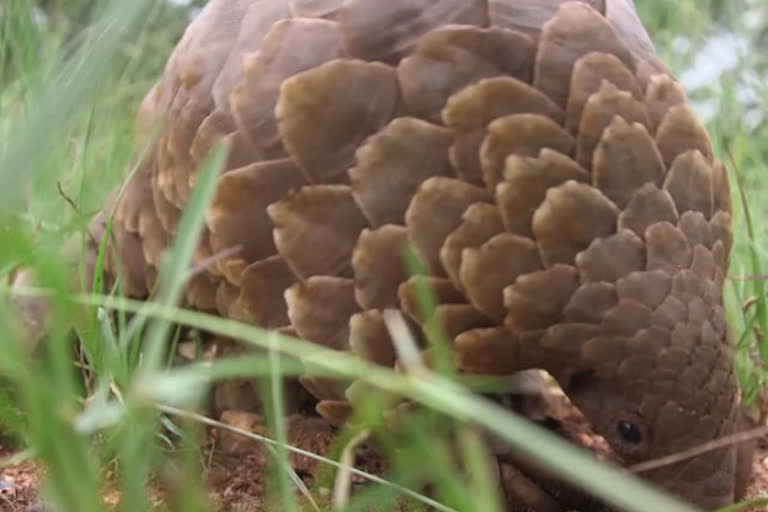Courtesy: APTN

African Pangolin Working Group is working to rescue pangolins from illegal trade. The rescued pangolins are kept at the center near Johannesburg for recovery of health.
Dr Karin Lourens, wildlife veterinarian says, "They've been kept without food for probably 17 days, sometimes two weeks. And they're kept in a bag, or a drum, or a sack and they are left like that. So they haven't had food or water for that whole period. So by the time we get them, they're emaciated, they're dehydrated, so they need urgent medical attention."
Pangolin scales are believed to cure arthritis, promote breast-feeding for mothers, and boost male virility. But there is no scientific backing for it. The scales are made of keratin, just like human nails and hair.
Professor Ray Jansen, African Pangolin Working Group Chair says, "The illegal trade mostly sources pangolin scales, to a lesser extent the meat, although, the meat is considered a very high and sought after delicacy in places like Vietnam. The scales are used in China, for traditional Chinese medicine. And the problem is this type of trade goes back many thousands of years. It is part of their culture and it is used in more than sixty different Chinese herbal products as a remedy. In other words just a part, in that particular remedy, to cure a number of either medical ailments or spiritual ailments."
The cost of pangolin scales in China was 11 USD for a kilogram in 1990's. The price rose to 470 USD by 2014, said researchers at Beijing Forestry University.
China and Vietnam are the main markets of pangolin. Around one million pangolins have been hunted in the last decade, sayd Monitoring Network Traffic (The Wildlife Trade Monitoring Network).
Kanitha Krishnasamy, Southeast Asia director of The Wildlife Trade Monitoring Network says in recent years the illegal trade has increased.
"We looked at global seizures from 2010 – 2015, and we found that in over 1100 records, more than 120 tonnes of pangolins were trafficked globally so that's the scale of the seizure that were talking about."
Earlier this week, Malaysian authorities seized a record 30 tons of pangolin and pangolin products in eastern Sabah state on Borneo, the biggest such bust in the country, according to Traffic.
Now the Ugandan scientists are tracking the pangolins with cameras and other tracking techniques.
The Convention on International Trade in Endangered Species of Wild Fauna and Flora (CITES) in 2016 adopted a worldwide ban on commercial trade in pangolins, China later approved that ban. After this pangolins were declared the protected species in China.
Yet , much more action is necessary to save the harmless creature. The World Pangolin Day on February 16 serves as a wake - up call day.
Also read- Watch: Private jet making emergency landing
(With inputs from APTN)



